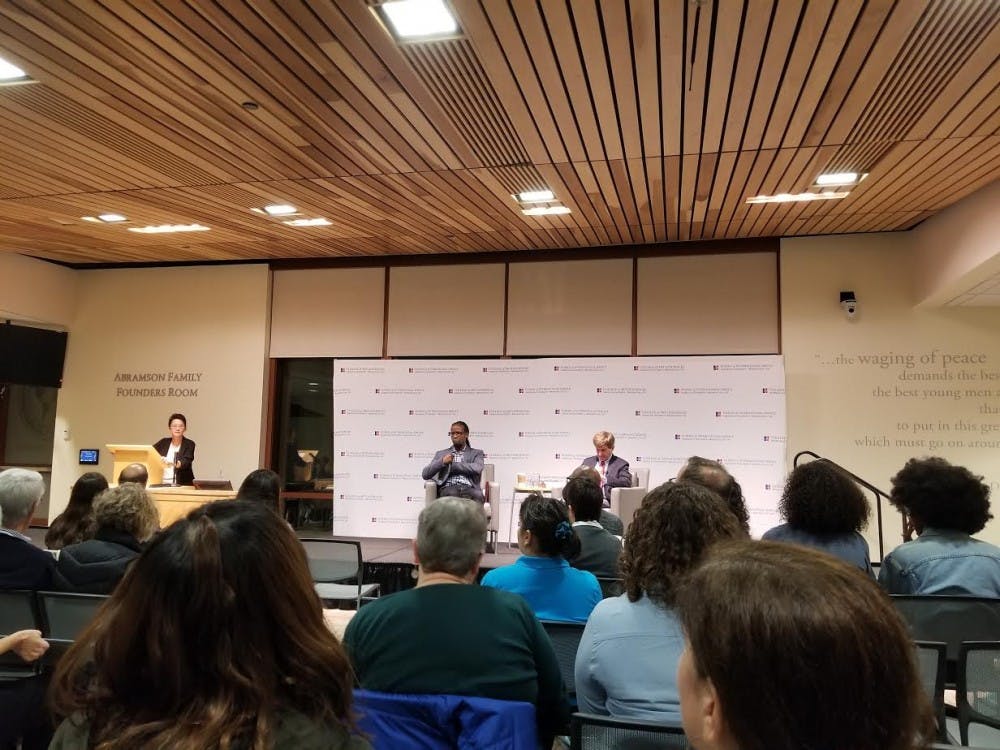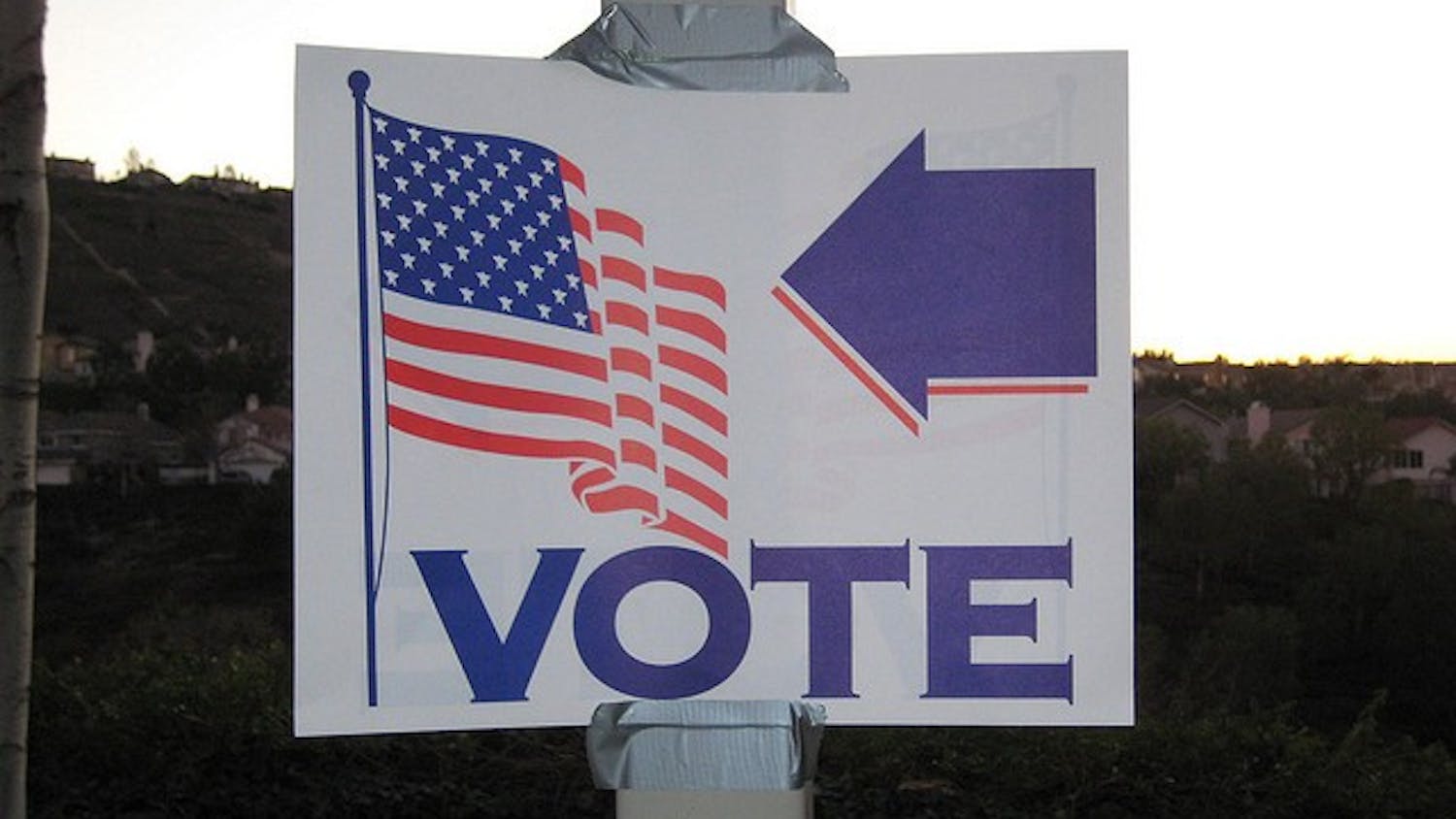On Nov. 1, two of AU’s most prominent professors held a talk about the right to vote, entitled “The Struggle for Voting Rights,” to inform students on the importance of voter suppression prior to the midterm elections on Tuesday.
Allan Lichtman, an author and a distinguished professor of history, and Ibram X. Kendi, the director at the Anti-Racist Research & Policy Center and a professor in the School of International Service and College of Arts and Sciences, centered their conversation around the barriers people face when trying to vote or make a difference in their community, such as voter I.D. laws and gerrymandering.
“I actually think [voter I.D. laws are] not talked about enough,” Kendi said in an interview after the event. “I think people are certainly talking about it more now than we have in the past. It should be one of the primary reasons we understand how certain politicians win and how certain politicians lose.”
Throughout the conversation, both Kendi and Lichtman emphasized that voter I.D. laws are a technique to limit minorities’ and young people's political voices. Lichtman said the fact that it only affects 5 to 10 percent of the electorate isn’t a reason for people to dismiss the issue.
“The Republican base is older, white Christians – the most shrinking part of the electorate,” Lichtman said. “What is the most expanding part of the electorate? Minorities and young people.”
Lichtman and Kendi weighed in on another controversial technique that has recently been a center of the national political conversation: gerrymandering.
Lichtman recounted his experience as a key witness in a gerrymandering case in Florida, where the congressional district being reviewed was manipulated in a way to group together African-Americans to limit the power of their vote in other districts. Lichtman said that even though this negatively affected African-American voters, African American politicians “resisted the resistance” because of their own political self-interest.
When an audience member asked what she could do in her state to fight against gerrymandering, Lichtman responded by encouraging her to be a “local activist in terms of electing state judges and trying to get anti-gerrymandering laws in your state.”
In terms of other solutions to fighting against voter suppression, Kendi told the audience to try to show people who support politicians who are implementing these types of laws how they are hurting minorities and young people.
“My solution is to think very clearly as to why these people are being manipulated,” Kendi said.
Rachel Hunn, a sophomore studying political science and history and a volunteer with the league of Women Voters of D.C., came to the event because she finds voter suppression to be a very important issue.
“I think it is a very relevant topic in today’s society so I think it is definitely a topic for people to be educated about,” Hunn said.
When speaking on the current political climate and the upcoming midterms, both Kendi and Lichtman agreed that it is hard to predict what the outcome will be on Election Day, Nov. 6. However, both professors concluded that this election is critical when it comes to electing people to office who oppose President Trump’s policies.
“The irony is that the grandchildren or even the great grandchildren of eastern Europeans, Irish and Asians are the very people who are supporting the anti-immigration ideas and laws that fundamentally would keep their grandparents out of the country,” Kendi said.
Lichtman and Kendi emphasized the fact that voter turnout, specifically young people showing up to vote, is essential for necessary change in the United States.
“People have died for the vote,” Lichtman said in an interview after the event. “People have made enormous sacrifices to vote. It is a crying shame when young and intelligent college students don’t vote. They’re the most important voters because the future belongs to the young and what policies being made today are going to shape their future.”





